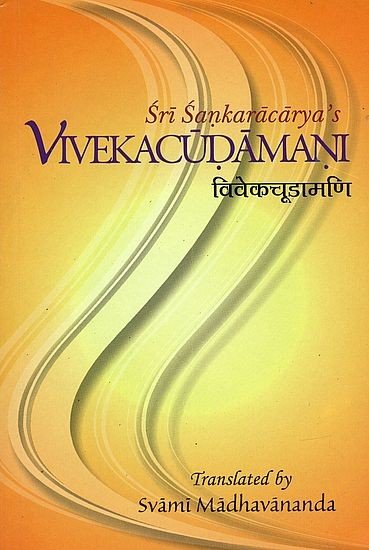Vivekachudamani
by Shankara | 1921 | 49,785 words | ISBN-13: 9788175051065
The Vivekachudamani is a collection of poetical couplets authored by Shankara around the eighth century. The philosophical school this compilation attempts to expose is called ‘Advaita Vedanta’, or non-dualism, one of the classical orthodox philosophies of Hinduism. The book teaches Viveka: discrimination between the real and the unreal. Shankara d...
Verse 70
ततः श्रुतिस्तन्मननं सतत्त्व
ध्यानं चिरं नित्यनिरन्तरं मुनेः ।
ततोऽविकल्पं परमेत्य विद्वान्
इहैव निर्वाणसुखं समृच्छति ॥ ७0 ॥tataḥ śrutistanmananaṃ satattva
dhyānaṃ ciraṃ nityanirantaraṃ muneḥ |
tato'vikalpaṃ parametya vidvān
ihaiva nirvāṇasukhaṃ samṛcchati || 70 ||70. Then come hearing, reflection on that, and long, constant and unbroken meditation on the Truth for the Muni. After that the learned seeker attains the supreme Nirvikalpa state and realises the bliss of Nirvana even in this life.
Notes:
[Compare Brihadaranyaka Upanishad II. iv. 5.
Hearing—of the Truth from the lips of the Guru.
Meditation—the flowing of the mind in one unbroken stream towards one object.
Muni—the man of reflection.
Nirvikalpa state—that state of the mind in which there is no distinction between subject and object—all the mental activiti es are held in suspension, and the aspirant is one with his Atman. It is a. s uperco n scious sta te, beyond all re lativity, which can be felt by the fortunate seeker, but cannot be described in words. The utmost that can be said of it is that it is inexpressible Bliss, and Pure Consciousness. Nirvana, which literally means ‘blown out,’ is another name for this.]
